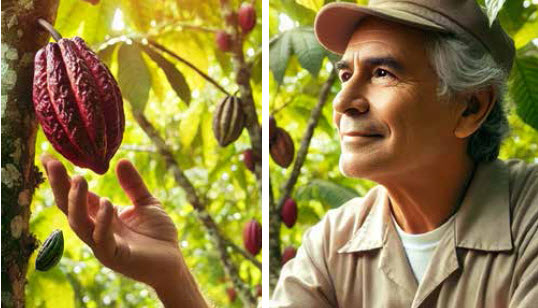Harnessing Microbial Science: Microbebio’s New Frontier in Soil Remediation
Modern agriculture faces a mounting challenge: soils are not only degraded by overuse of chemical fertilizers and pesticides but increasingly contaminated with residual plastics and salts. Discarded mulch films, microplastics from packaging, and saline irrigation water are altering soil chemistry, harming beneficial organisms and limiting plant growth. Microbebio, already a leader in biofertilizers and biostimulants, is pioneering a new generation of microbial solutions to tackle these hidden threats head‑on.
The Plastic Problem Beneath Our Feet
Plastic mulch and agrochemical containers have revolutionized farming efficiency but leave lasting residues in the soil. Tiny particles persist for years, disrupting soil structure, interfering with water movement and inhibiting root development. Conventional remediation is costly and labor‑intensive; nature offers a subtler alternative.
Microbebio’s research team has developed proprietary strains of bacteria and fungi capable of degrading complex polymers. These microbes produce specialized enzymes that break down polyethylene and other common plastics into simpler compounds that soil organisms can assimilate. By introducing these organisms into contaminated fields, plastic residues are gradually converted into harmless organic matter—reducing the ecological footprint of farming and making soils more porous and fertile.
Tackling Salinity and Chemical Contaminants
High salinity and chemical residues from years of fertilizer and pesticide use can render soils inhospitable. Salt stress disrupts water uptake and nutrient balance, while heavy metals and residual agrochemicals accumulate in the food chain.
Microbebio’s multi-strain formulations are engineered to remediate these conditions on multiple fronts:
-
Salt-tolerant bacteria produce exopolysaccharides that form protective biofilms around roots, preventing salt ingress and helping plants maintain water balance. These biofilms also bind sodium ions, reducing soil salinity over time.
-
Biodegrader consortia metabolize persistent agrochemical residues, transforming them into non-toxic compounds. They sequester heavy metals and facilitate their removal from the root zone.
-
Mycoremediation fungi partner with plant roots, extending their reach and facilitating the uptake and detoxification of contaminants while restoring structure to compacted soils.
Restoring Life and Biodiversity
Healthy soils are teeming ecosystems. Plastic fragments, salts and chemicals suppress microbial diversity and drive beneficial organisms away. By introducing targeted degraders and salt-mitigating microbes, Microbebio not only removes contaminants but jump-starts a resurgence of soil life. Enhanced microbial diversity improves nutrient cycling, increases organic matter, and creates a hospitable environment for earthworms, insects and other beneficial fauna. This biological renaissance lays the foundation for resilient, productive crops.
Optimizing Crop Yields Through Science
The ultimate test of any soil technology is its impact on the harvest. Fields treated with Microbebio’s remediation blends show:
-
Improved root growth and water uptake due to reduced salinity and improved soil structure.
-
Better nutrient availability as contaminants are neutralized and beneficial microbes solubilize minerals.
-
Enhanced plant vigor and yield from a healthier soil ecosystem that supports robust plant growth.
These benefits are additive to Microbebio’s existing biofertilizer programs, creating an integrated approach that addresses both soil fertility and soil health.
A Sustainable Path Forward
Microbebio’s mission has always been to align farming with natural processes. By deploying cutting‑edge microbiology to degrade plastics, neutralize toxins and reclaim salty soils, the company pushes the frontier of sustainable agriculture. Farmers gain cleaner, more productive land; consumers enjoy safer food; and the environment benefits from reduced pollution and renewed biodiversity.
As global awareness of soil health grows, Microbebio invites growers, researchers and policymakers to explore how this innovative technology can transform the way we care for the land. Through science and stewardship, we can heal our soils and secure a fertile future for generations to come.
#Microbebio #SoilRemediation #PlasticDegradation #SalinityManagement #Bioremediation #RegenerativeAgriculture #SoilHealth #SustainableFarming #CleanEarth #EcoFriendly #AgTech
